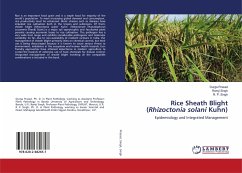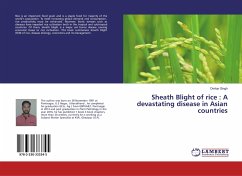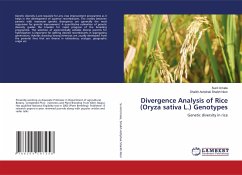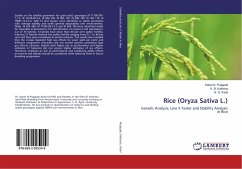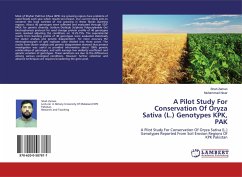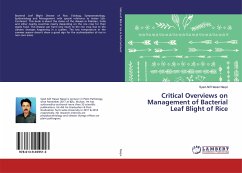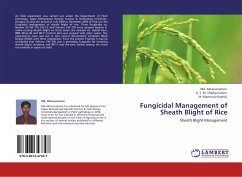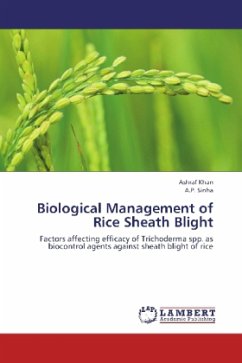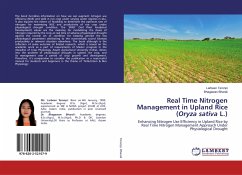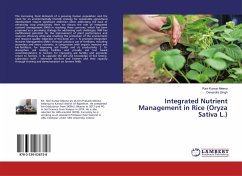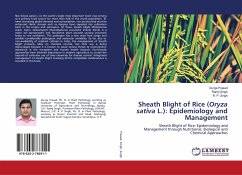
Sheath Blight of Rice (Oryza sativa L.): Epidemiology and Management
Sheath Blight of Rice: Epidemiology and Management through Nutritional, Biological and Chemical Approaches
Versandkostenfrei!
Versandfertig in 1-2 Wochen
36,99 €
inkl. MwSt.

PAYBACK Punkte
18 °P sammeln!
Rice (Oryza sativa L.) is the world's single most important food crop serving as a primary food source for more than half of the world population. To meet increasing global demand and consumption, rice productivity must be enhanced. Biotic stresses such as diseases have impeded rice cultivation both in the tropics and subtropics. Of them, sheath blight [Rhizoctonia solani Kuhn (teleomorph: Thanatephorus cucumeris (Frank) Donk] is a major soil saprotrophic and facultative plant parasite causing economic losses to rice cultivation. The pathogen has a very wide host range and exhibits considerabl...
Rice (Oryza sativa L.) is the world's single most important food crop serving as a primary food source for more than half of the world population. To meet increasing global demand and consumption, rice productivity must be enhanced. Biotic stresses such as diseases have impeded rice cultivation both in the tropics and subtropics. Of them, sheath blight [Rhizoctonia solani Kuhn (teleomorph: Thanatephorus cucumeris (Frank) Donk] is a major soil saprotrophic and facultative plant parasite causing economic losses to rice cultivation. The pathogen has a very wide host range and exhibits considerable pathogenic and molecular variability. So far, due to non-availability of resistant cultivars in India, the management of sheath blight primarily relies on chemical control, but their use is being discouraged because it is known to cause serious threat to environment, imbalance in the ecosystem and human health hazards. Eco-friendly approaches have attained importance in modern agriculture to curtail the hazards of extensive use of toxic chemicals for disease control. Integrated management of sheath blight involving all the compatible combinations is included in this book.



